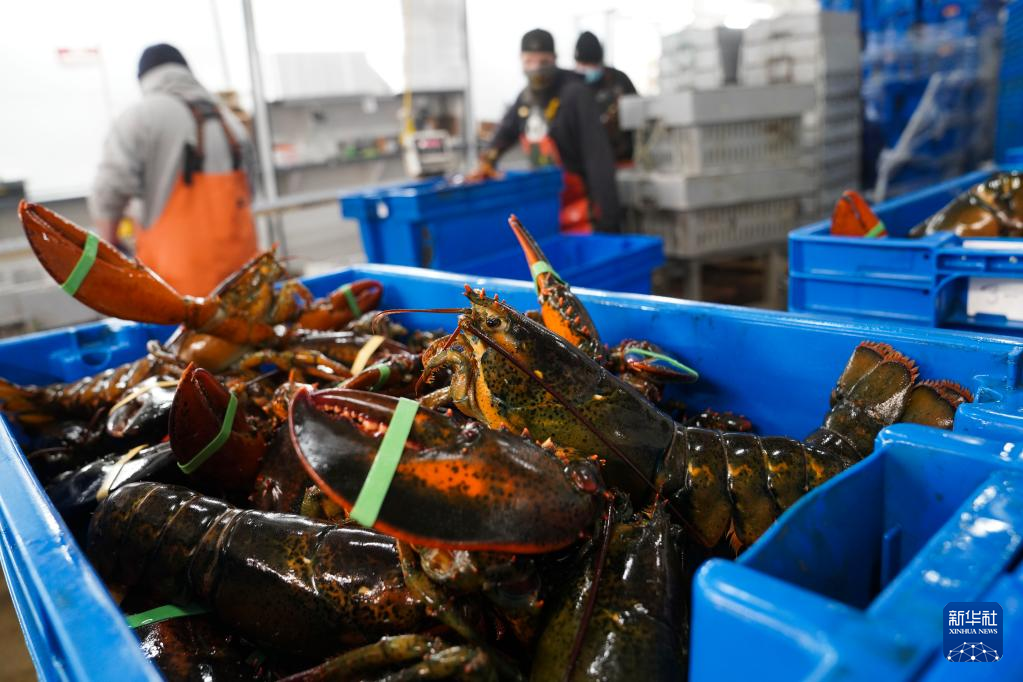
Workers sort lobsters by size at The Lobster Co. in Arundel, Maine, the United States, Jan. 24, 2022. (Xinhua/Wang Ying)
PORTLAND, the United States, Jan. 31 (Xinhua) -- U.S. lobster exporters are busy preparing for the Chinese New Year, an occasion for big banquets and plenty of seafood consumption.
The week-long holiday, commonly known as the Spring Festival or the Lunar New Year, is typically one of the busiest times for the U.S. lobster business.
Appetite for the crustaceans remains strong in China this year, despite pandemic-related challenges to transportation and logistics, according to U.S. lobster industry members.
"I have orders every day. Whether I can get them all on the airplanes every day becomes a question," Bill Bruns, operations manager at The Lobster Co., told Xinhua in a recent interview.
Located in Arundel, the U.S. state of Maine, The Lobster Co., has been selling fresh seafood since 1994 and is among the earliest in America to sell lobsters to China. The northeasternmost U.S. state of Maine generally accounts for 80 percent to 85 percent of all U.S. lobster sales.
"I sold to Beijing, Shanghai, Guangzhou, Shenzhen, and Hong Kong," said Stephanie Nadeau, owner of The Lobster Co., who started her Chinese business in 2009 and sold about 3 million pounds of lobster to the Asian giant last year.
"The big lobsters, the select lobsters, are the premium expensive lobsters, and they tend to go to Beijing or Guangzhou. In Shanghai, they buy a quarter size and half size. And in Hong Kong, they buy mostly the smaller size," said Nadeau.
Nadeau said Chinese New Year business can last for a couple of weeks and consumption for lobsters there often remains strong even after the holiday.
"It's like it doesn't end. It's not like a U.S. holiday, like it's Christmas and then Christmas is over," she said, adding her company shipped about 25,000 pounds per week to China in January.
"That's how much space I can get on the plane," said Nadeau, noting international trade has been complicated by the pandemic.
U.S. lobster industry members said business with China is crucial to the U.S. seafood industry, hoping that international shipping difficulties caused by the COVID-19 could be resolved soon.
The Chinese market and Asian customers are "vital to us," Virginia Olsen, executive liaison of the Maine Lobstering Union, a lobstermen-owned cooperative, told Xinhua.
"We have been preparing for the Lunar New Year since our Christmas holiday ... We ship more during the Lunar New Year than we do during Christmas, so we've been very busy getting ready," she said.
Olsen said that U.S. lobster exports to China have "increased exponentially" over the past decade, adding "we hope that this year will be another success."
Bill Coppersmith, a member of the union who has been in the business for 42 years, said he believes many of the lobsters he caught went to Chinese plates.
"I think China enjoys our product quite a bit," said Coppersmith. "The more demand that they have for the product, the better it is for the fishermen."
While the pandemic has impacted U.S. lobster exports overall since its onset about two years ago, the industry's U.S.-to-China trade pipeline is making a comeback.
International trade data showed that during the first 11 months of 2021, American exporters sent more than 13.2 million pounds of lobster to China, about 6 percent more than the same time period the previous year.
"In the next few years, I suspect we'll be selling more and more to China. I just hope we can catch enough to keep everybody satisfied," said Coppersmith, noting stable trade with China is mutually beneficial and win-win.
"It's good that we can export something to them, because we get so much from China," he said.
Olsen said the Chinese market has great potential. "We really look forward to building those relationships." ■
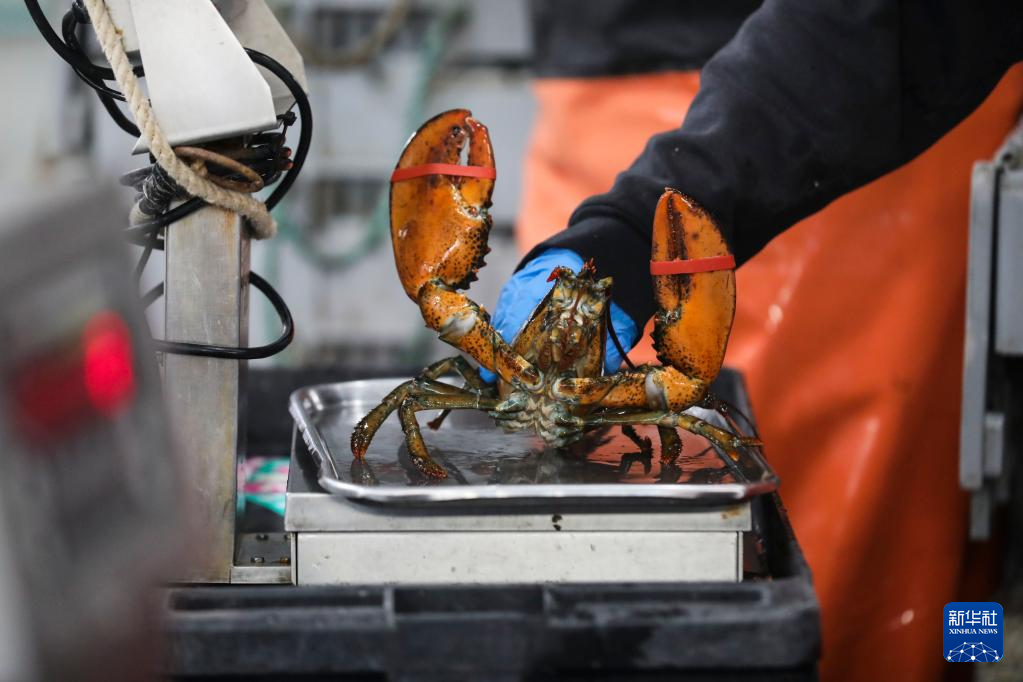
A worker weighs a lobster to sort at The Lobster Co. in Arundel, Maine, the United States, Jan. 24, 2022. (Xinhua/Wang Ying)
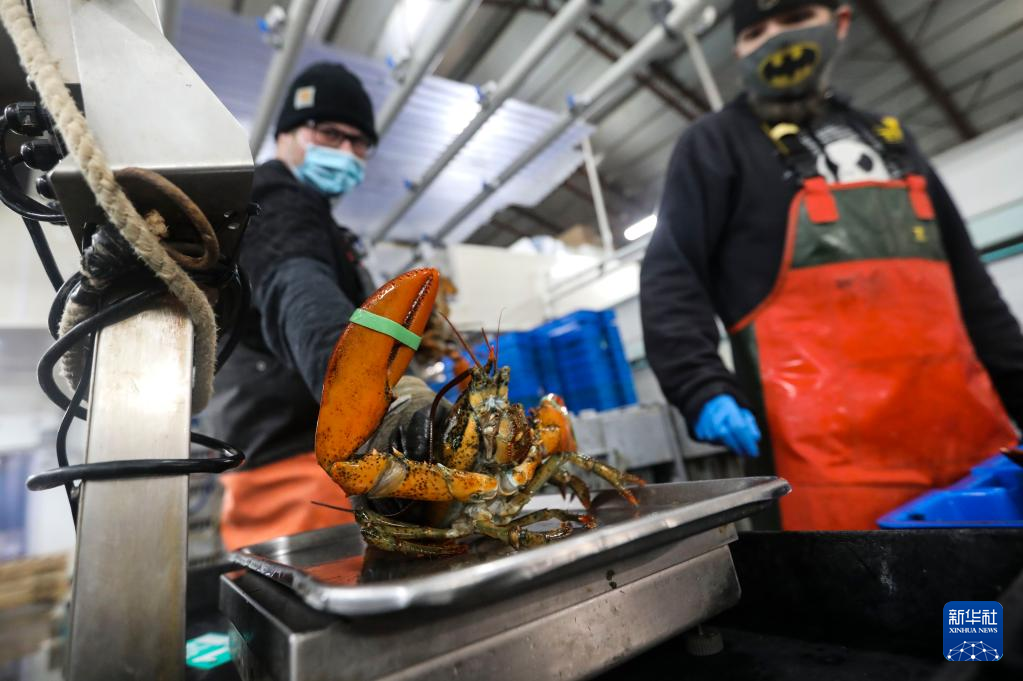
A worker weighs a lobster to sort at The Lobster Co. in Arundel, Maine, the United States, Jan. 24, 2022. (Xinhua/Wang Ying)
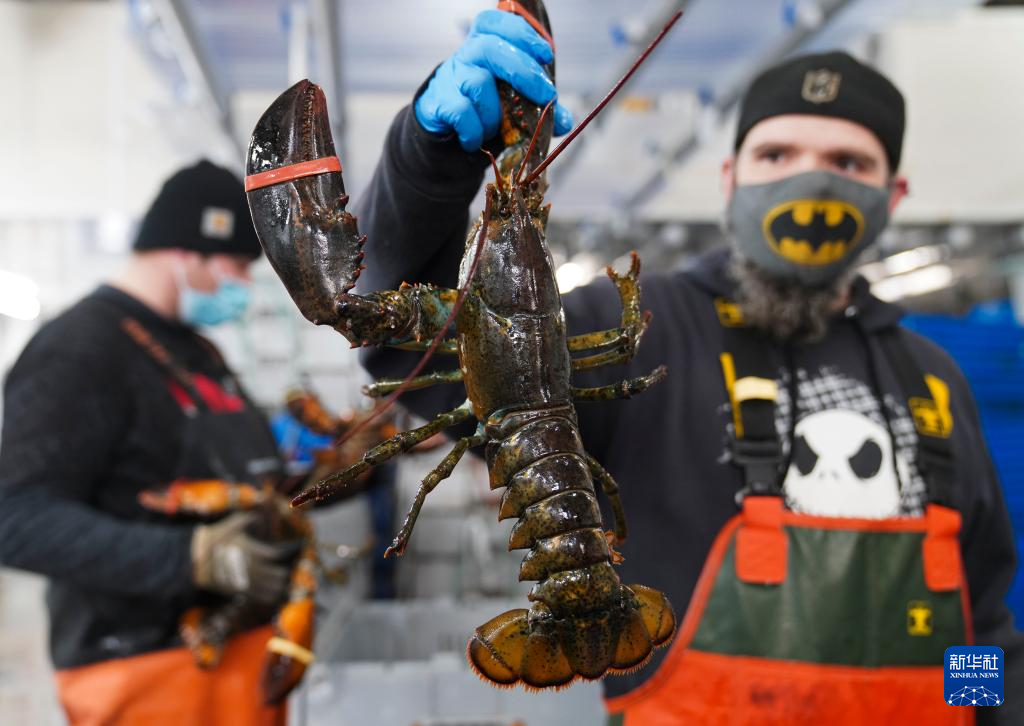
Workers sort lobsters by size at The Lobster Co. in Arundel, Maine, the United States, Jan. 24, 2022. (Xinhua/Wang Ying)
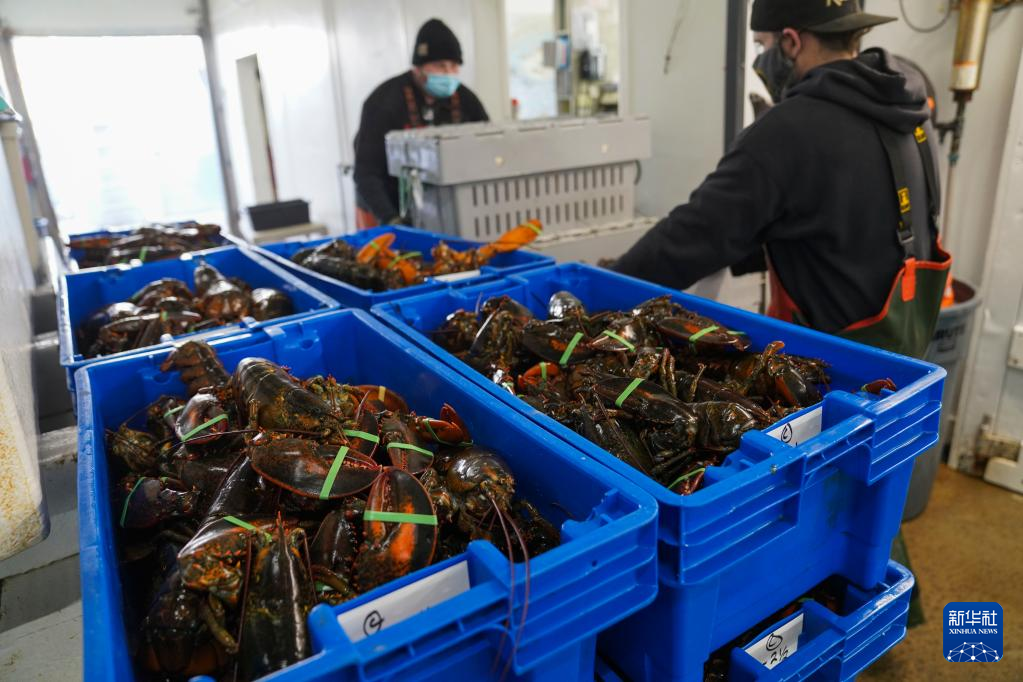
Workers carry containers with lobsters at The Lobster Co. in Arundel, Maine, the United States, Jan. 24, 2022. (Xinhua/Wang Ying)
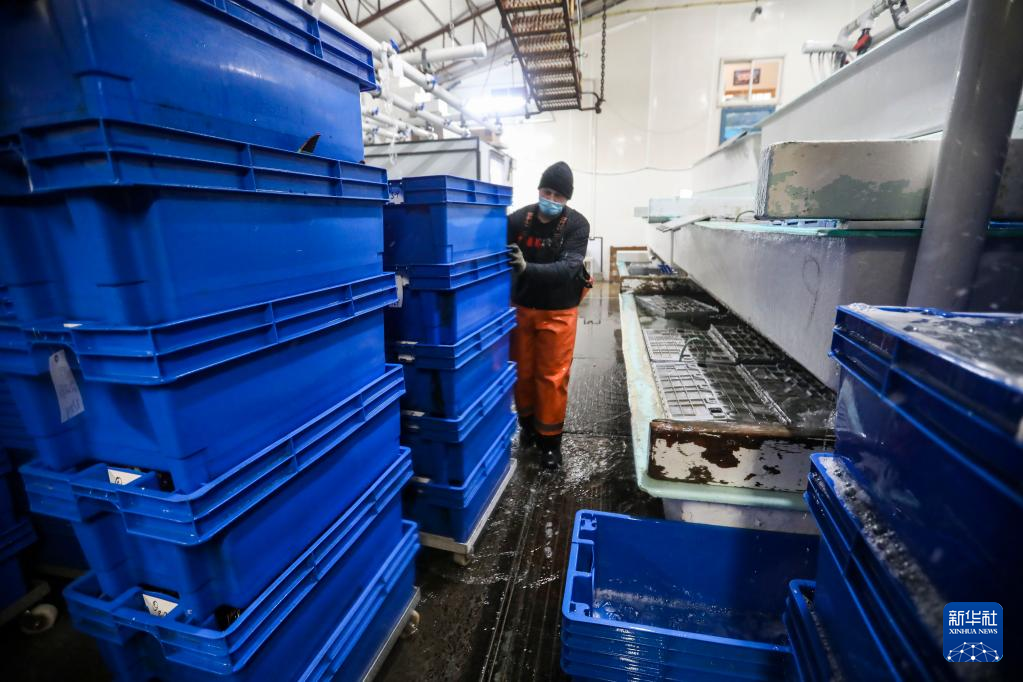
A worker pushes containers with lobsters into a storage area at The Lobster Co. in Arundel, Maine, the United States, Jan. 24, 2022. (Xinhua/Wang Ying)
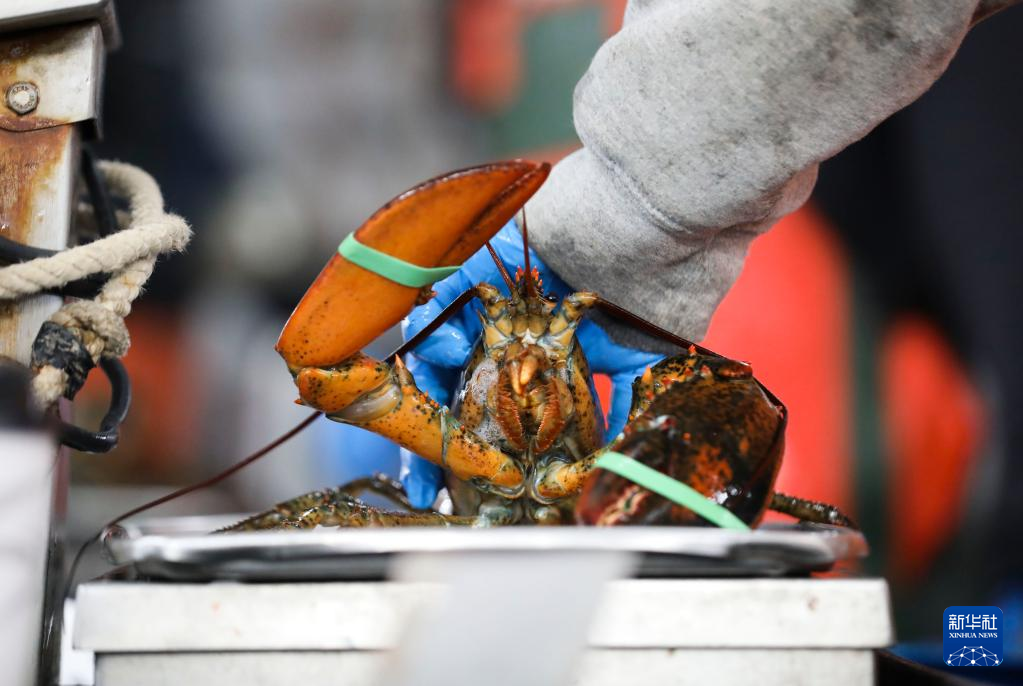
A worker weighs a lobster to sort at The Lobster Co. in Arundel, Maine, the United States, Jan. 24, 2022. (Xinhua/Wang Ying)
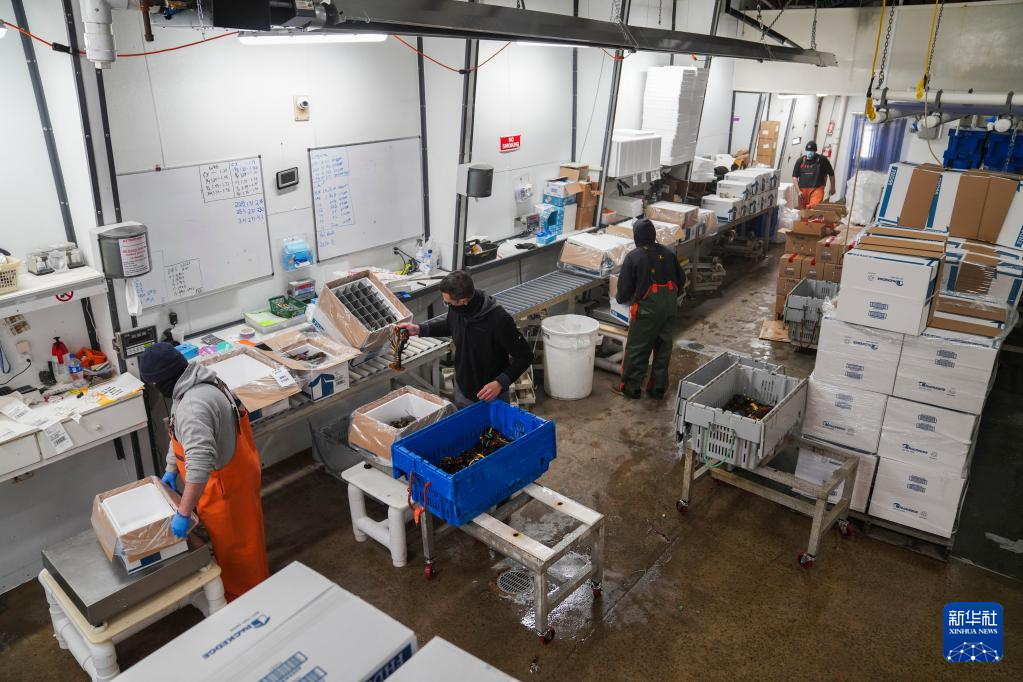
Workers pack lobsters for shipment at The Lobster Co. in Arundel, Maine, the United States, Jan. 24, 2022. (Xinhua/Wang Ying)

Photo taken on Jan. 24, 2022 shows the exterior of The Lobster Co. in Arundel, Maine, the United States. (Xinhua/Wang Ying)

Stephanie Nadeau, owner of The Lobster Co., speaks during an interview with Xinhua at her company in Arundel, Maine, the United States, Jan. 25, 2022. (Xinhua/Wang Ying)

Bill Coppersmith, a member of the Maine Lobstering Union who has been in the business for 42 years, checks his lobster traps at a pier in Portland, Maine, the United States, Jan. 25, 2022. (Xinhua/Wang Ying)



